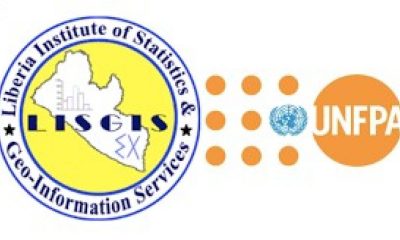
Paynesville – In March this year, the public attention was directed to an important topic after news spread that the House of Representatives had passed a Bill geared toward promoting breastfeeding for children from one day old to six months. Although the Bill has not been accepted by the Senate before making way for the President to sign it into law and subsequent printing into handbill, the discussions around breastfeeding quickly became a topical issue with some people asking about its significance to the nutrition and growth of newborn babies.
Report By Grace Z. Gaie | LVL Fact Checker
In this explainer, we will tell you why a mother’s breastmilk is important for the health of her baby. And herself.
What Nutrients are in a Mother’s Breastmilk?
Proteins, fats, vitamins, and carbohydrates are some of the nutrients that can be found in a mother’s breastmilk. There are two types of proteins that are contained in breastmilk: whey and casein – 60 % of the protein in the breastmilk is whey while 40% is casein. Doctors say this balance of the proteins allows for quick and easy digestion. These proteins have great infection-protection properties, according to the American Pregnancy Association.
For the fats found in the breastmilk, it is very important for the development of a child’s brain and helps the absorption of fat-soluble vitamins, and it is a primary calorie source while the vitamins found in the breastmilk – vitamins A, D, E, and K – are all vital to the infant’s health.
Lactose is the primary carbohydrate found in a mother’s milk, accounting for approximately 40% of the total calories provided by breast milk. Lactose helps to decrease a large number of unhealthy bacteria in the stomach, which improves the absorption of calcium, phosphorus, and magnesium. It helps to fight disease and promotes the growth of healthy bacteria in the stomach.
These are important nutrients that are found in breastmilk which makes it very essential for babies health when they are fed for recommended period of time.
Why is Breastfeeding Important for Babies
One of the most important benefits of breast feeding is that it is a great way for mothers to bond with their babies . It also supports the mental health of the baby and mother, making it the ideal food for any baby.
According to the World Health Organization, breastfeeding is one of the most effective ways to ensure a child’s health and survival. Breast milk protects them from illnesses like obesity, running stomach, type one diabetes, severe lower respiratory disease, Acute otitis media or ear infections amongst others.
Breast milk provides all the energy and nutrients that the infant needs for the first months of life, and it continues to provide up to half or more of a child’s nutritional needs during the second half of the first year, and up to one third during the second year of life, according to the WHO. The global health body adds that children who are breastfed most likely perform better on intelligence tests; “they are less likely to be overweight or obese and less prone to diabetes later in life.”
UNIECF also suggest that breastfeeding protects children from a vast range of illnesses, including infection, diabetes, asthma, heart disease and obesity, as well as Sudden Infant Death Syndrome.
Also, the WHO, citing a 2016 study published in the Lancet, states that increasing breastfeeding rates around the world could prevent 823,000 annual deaths in children younger than five years and 20,000 annual maternal deaths from breast cancer.
Dr. Ruth Petersen, Director of Nutrition, Physical Activity and Obesity at the US Centers for Disease Control and Prevention, explains that “Breastfeeding provides unmatched health benefits for babies and mothers”.
“It is the clinical gold standard for infant feeding and nutrition, with breast milk uniquely tailored to meet the health needs of a growing baby. We must do more to create supportive and safe environments for mothers who choose to breastfeed,” Dr. Petersen wrote on the CDC website.

Source: US Centers for Disease Control and Prevention
Does Breastfeeding Benefit Mothers?
Yes, breastfeeding is also very important for new baby mothers. The CDC also considers breastfeeding as “an investment in health and not just a lifestyle decision of the mother”.
And doctors have also advised that breast feeding provides a lot of benefits for mothers including reducing their risk of high blood pressure, type 2 diabetes, ovarian cancer, and breast cancer. Study shows that breastfeeding helps a mother to burn around 500-700 calories a day — this is equivalent to 45 minutes of a medium-intense exercise. It also helps baby mothers manage or lose postpartum weight.
Conclusion
Breast milk is very much important for every child — from zero to six months and beyond. Breast milk keeps babies healthy by protecting them from variety of diseases. Breastfeeding mothers also enjoy low risk of experiencing certain health conditions. All of these make breastfeeding an essential and healthy process for both the mother and child. This makes it very important for every mother to breastfeed her child from zero month to at least six months.
You may contact us to fact check any claim or information relative to Liberia. Contact us on:
Factcheck.localvoicesliberia@gmail.com or WhatsApp: +231880986778

Local Voices Liberia is a network of dedicated Liberian journalists based in the 15 counties working to lift the development concerns and progress of rural communities.


Methodology

True
The claim is rigorous and the content is demonstrably true.

Half True
The statement is correct, although it needs clarification additional information or context.

Unproven
Evidence publicly available neither proves nor disproves the claim. More research is needed.

Misleading
The statement contains correct data, but ignores very important elements or is mixed with incorrect data giving a different, inaccurate or false impression.

False
The claim is inaccurate according to the best evidence publicly available at this time.

Retraction
Upon further investigation of the claim, a different conclusion was determined leading to the removal of the initial determination.

Toxic
A rude, disrespectful, or unreasonable comment that is somewhat likely to make you leave a discussion or give up on sharing your perspective. Based on algorithmic detection of issues around toxicity, obscenity, threats, insults, and hate speech;

































































































































































































































































































































































































































































































































































































